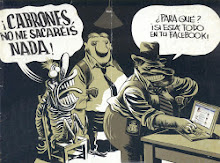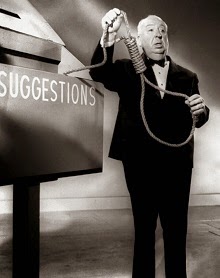As Inspector Rebus approaches his 30th anniversary, his creator explains how the sleuth took on a life of his own
Ken Stott as Rebus in ITV’s adaptation of The Naming of the Dead.
Photograph: ITV Plc
Photograph: ITV Plc
Next year I’ll be celebrating the 30th anniversary of the Inspector Rebus series, and right now I’m about to launch his 21st adventure, Rather Be the Devil. It sometimes seems that Rebus has taken on a life of his own, yet he was never intended to stick around for longer than that first book. I was a postgraduate student at the University of Edinburgh when I wrote it (which may explain why I never finished my PhD on Muriel Spark). I vaguely knew I was writing a detective novel – because William McIlvanney had been there before me and I’d read the result, featuring a dour but philosophical Glasgow cop called Laidlaw. Indeed, when McIlvanney visited the Edinburgh book festival in August 1985, I told him I was writing the Edinburgh equivalent, and he signed my copy of his book: “Good luck with the Edinburgh Laidlaw.”
McIlvanney, however, was about as much crime fiction as I read, and it was only when Knots and Crosses was reviewed as a crime novel and shelved with other such stories in bookshops that I began to realise I had better start delving into the genre. I soon came to love crime fiction – for its rollercoaster plots, its memorable heroes and villains, and its knotty moral concerns. Here was a form that would allow me to write what I wanted to write, namely readable novels about the darker side of life in Scotland’s capital.
So it was that Rebus returned for a second instalment, and then a third. The books were well reviewed but didn’t make waves in terms of sales, and by the time I got to Black and Blue (number eight in the sequence) I was growing ever so slightly desperate. Writing had gone from being a hobby to my main source of income. My wife and I had two young sons and the younger had been diagnosed with severe special needs. I was angry and bewildered, suffering panic attacks and wondering if I was going to have to jack it all in and get a proper job.
Instead, I channelled everything into Black and Blue. I had been reading a lot of James Ellroy, and it shows. I turned to his staccato style, and decided that, like him, I could people my world with real crimes, real villains and real mysteries. I had ended my apprenticeship and felt I knew the inside of John Rebus’s head, knew what made him tick. When the book was published in January 1997 one reviewer said he doubted he would read a better crime novel that year. In November, Black and Blue won the Gold Dagger award and went on to sell four times as many copies as any of my previous books. I felt I could relax a little, having proved to my publisher and myself that I knew what I was doing.
Rebus, however, lived in real time, which meant that retirement eventually loomed. Now, in Rather Be the Devil, he is on the periphery of the police, itching to get involved but unable to find a role. He has health issues, too, which trouble him as he sits in his tenement flat, surrounded by notes from cases solved and unsolved. One of these begins to resonate with crimes happening in the present, and Rebus starts to see a way in which he can become useful again – useful as a detective, which is the only thing he’s ever wanted in life. Along with his old adversary, the gangster Morris Gerald Cafferty, he is asking himself if he has made any difference to the world. The two men become involved in a battle of wills. This has been the story of their relationship ever since Cafferty entered the series in book three. Neither man can really imagine a world without the other, much as they may sometimes want to kill one another.
The Rebus of Black and Blue was a creature in his physical prime, unafraid of a ruck. These days, he has to use his intellect and knowledge if he’s to stand a chance of coming out on top. We see this in a couple of key scenes in the new book, where I reintroduce a character from Black and Blue. Craw Shand is a serial confessor, who owns up to any newsworthy crimes in the hope of becoming the centre of attention rather than one of life’s losers. When Rebus interviews him in the earlier novel, there is resulting violence. In the very changed world of Rather Be the Devil, that can’t happen – and Rebus knows it even if Shand doesn’t.
Rebus has matured as a character in the course of the series without becoming any less complex. He’s out there right now on some Edinburgh street, trying to make sense of the world, and determined to endure.
Ian Rankin will discuss Black and Blue at a Guardian Book Club event at the British Library on 1 November. Tickets £15. theguardian.com/guardianlive. Rather Be the Devil is published by Orion on 3 November. To order a copy for £16.39 (RRP £19.99) go to bookshop.theguardian.com or call 0330 333 6846. Free UK p&p over £10, online orders only. Phone orders min p&p of £1.99.
























.jpeg)









0 comentaris:
Publica un comentari a l'entrada